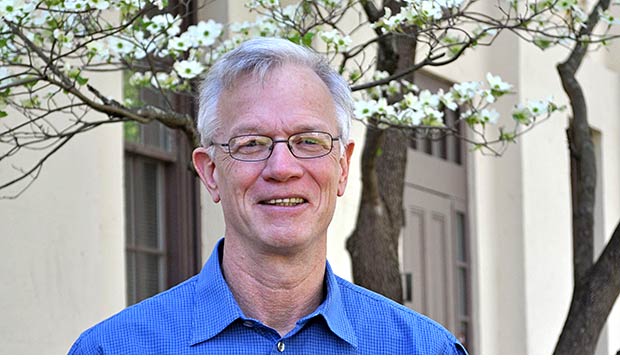Top planning scholar, author returns to Texas A&M faculty
Berke, who founded Texas A&M's Hazard Reduction and Recovery Center, is an Outstanding Alumnus of the College of Architecture.
Philip Berke ‘81, widely regarded as one of the nation’s top land use planning scholars, is returning to Texas A&M in 2014 to rejoin the urban planning faculty and help lead the university’s [Institute for Sustainable Communities] (http://www.tamug.edu/iscc/) .
“As the author of one of the most-widely used textbooks in the country, [Urban Land Use Planning] (http://www.amazon.com/Urban-Land-Use-Planning-Fifth/dp/0252030796) , Berke is extremely well-known to planning academics, students, and practitioners,” said Shannon Van Zandt, director of Texas A&M’s Master of Urban Planning program. “His return significantly raises the university’s profile and promises to attract top graduate students interested in land use, environmental, and disaster planning from around the world.”
Through his research findings, Berke, an urban planning faculty member at Texas A&M from 1987-1994, has revealed how cities’ environmental, social, and economic systems are affected by land use decisions. He has made major contributions in natural hazard mitigation, urban land use planning, growth management, sustainable development and environmental planning and policy, said David Godschalk, professor emeritus of city and regional planning at the University of North Carolina – Chapel Hill, where Berke taught from 1995-2013.
“He is a top international scholar on coastal environmental planning who will bring vast experience and leadership to the Institute for Sustainable Communities,” said Sam Brody, director of the ISCC, a joint initiative between Texas A&M’s College of Architecture and Texas A&M University at Galveston. Berke will lead the college’s efforts in the institute, which generates sustainable, research-based solutions to coastal development problems in Texas and throughout the world.
Since 2008, Berke served as principal investigator or co-principal investigator on research projects with funding from the National Science Foundation, the Federal Emergency Management Agency and the Department of Homeland Security totaling more than $19 million.
Berke will also lead a multidisciplinary initiative bringing together sustainability and resilience research and best practices from research centers at the College of Architecture and throughout the university.
An outstanding alumnus of the College of Architecture who earned a Ph.D. in Urban and Regional Sciences in 1981, Berke founded Texas A&M’s [Hazard Reduction & Recovery Center] (http://hrrc.arch.tamu.edu/) in 1988 and served as its first interim director.
He continued his high level of scholarship at the University of North Carolina – Chapel Hill beginning in 1995, where he served on the urban planning faculty and director of the university’s Center of Sustainable Community Design and deputy director of the Institute for the Environment.
Previous post
Tags
- academics
- building a better texas
- class acts
- feature
- hazard reduction & recovery
- housing & urban development
- institute for sustainable communities
- interdisciplinary
- land development
- landscape architecture & urban planning
- outreach
- planning
- rss
- sustainability
Related Posts
Undergraduates sharpen research skills in program
JAPA features 4 papers by TAMU disaster researchers
Students to design, build new house

Study eyes how lower Lake Conroe levels impact economy

New CHUD director shares vision for center's expansion
Follow Us
Facebook Twitter Vimeo Youtube Flickr RSS
Recent Posts

Planning prof heads study of disaster housing aid

A message from the dean

Former student remembered as expert planner

Leading educator named new head of Architecture Dept.





_thumbnail_small.png)
